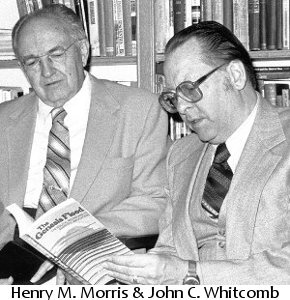The Case for Family Field Trips

Spring is close at hand! Though the winter was mild, we find ourselves yearning to shake the bonds of our winter domiciles and romp free in a sun-bathed world of lush vegetation and balmy temperatures. The heavens locked in wintry gray are already giving way to azure skies arrayed with billowing clouds of cottony-white. This means that prime exploration season is just around the corner!
I now refer to excursions into nature as “field trips.” Years ago I referred to them as “family vacation.” But with three teens and a tween in our home, I’ve learned the importance of truth in advertising. The kids protested that dad’s definition of “vacation” left scant room for lazy repose and frivolous entertainment. Our so-called “vacations” were chock-full of things like forced marches, challenging sleeping conditions, and unmitigated exposure to fresh air and rugged earth. Guilty as charged! So I changed the nomenclature to “field trips,” which I contend offer substantial benefits. Tremendous rewards accrue to those willing to leave behind the hustle and bustle of everyday life and explore the wild wonders of nature.
God’s glory
First, exploring nature is a singular means of witnessing the glory of the God who created heaven and earth. From pole to pole “the heavens declare the glory of God, and the sky above proclaims his handiwork” (ESV, Psalm 19:1). Nature is a canvas on which God reveals His splendor and power (Rom. 1:19-20). To explore nature is to cavort in the cathedral of God’s creative artistry and design: climbing mountains and basking in the vistas below; hiking rugged trails under the leafy boughs of towering trees; exploring waterfalls that tumble with violent force into murky basins; frolicking in the ocean’s surf to the symphonic strains of crashing waves and screeching gulls; watching the sun set across a placid lake as loons echo their haunting cry; trudging upland against the flow of a gurgling creek; exploring the dank, earthy splendors of a cave; star gazing in a remote field unspoiled by the glow of city lights; being mesmerized by the dancing flame of a cracking campfire as the wind stirs the chords of pine needles overhead. Such explorations into nature enrich and stabilize the soul, particularly when such wonders are received as a gift from nature’s Artificer (Gen. 1:31).
Discussion
Perry Questioned on Evolution/Creationism in New Hampshire
Body
Discussion
The Genesis Flood, Tidal Wave of Change
 The Genesis Flood is 50 years old today! The following article is reprinted with permission from the Baptist Bulletin July, 2010.
The Genesis Flood is 50 years old today! The following article is reprinted with permission from the Baptist Bulletin July, 2010.
Discussion
A Wonderful Creationist Heritage
 It is so important that we focus on God’s perspective concerning ultimate origins. Human theories, hypotheses, speculations and opinions come and go. But the God “who cannot lie” (NKJV,* Tit. 1:2), who was there when the world began, has written a perfect book—the Bible—which He requires that we read and believe (Rom. 10:17).
It is so important that we focus on God’s perspective concerning ultimate origins. Human theories, hypotheses, speculations and opinions come and go. But the God “who cannot lie” (NKJV,* Tit. 1:2), who was there when the world began, has written a perfect book—the Bible—which He requires that we read and believe (Rom. 10:17).

Discussion